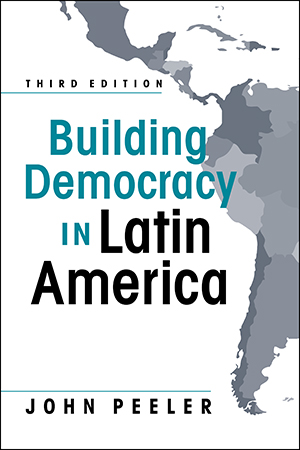
- 2008/275 pages
Building Democracy in Latin America, 3rd edition
Paperback: $30.00
ISBN: 978-1-58826-611-8
The third edition of this historically and theoretically grounded analysis of the democratic experience in Latin America reflects important developments both in the region and in the comparative politics literature.
Placing the subject in a normative context, John Peeler gives significant attention to the adequacy of a purely electoral concept of democracy. He also addresses the problems that economic globalization pose for building vital democracies. One focus of this new edition is the recent “left turn” in Latin America, which has seen the majority of the region’s countries elect presidents with socialist or social democratic stances that directly challenge the previously dominant free market, neoliberal ideology.
Placing the subject in a normative context, John Peeler gives significant attention to the adequacy of a purely electoral concept of democracy. He also addresses the problems that economic globalization pose for building vital democracies. One focus of this new edition is the recent “left turn” in Latin America, which has seen the majority of the region’s countries elect presidents with socialist or social democratic stances that directly challenge the previously dominant free market, neoliberal ideology.







